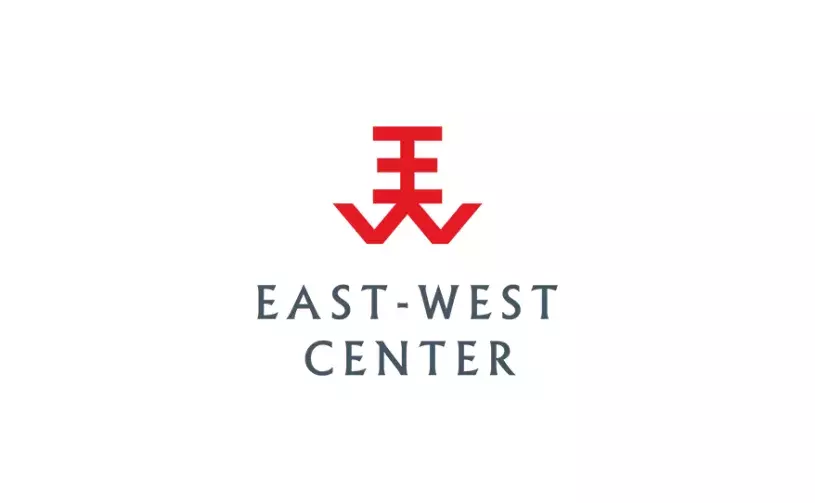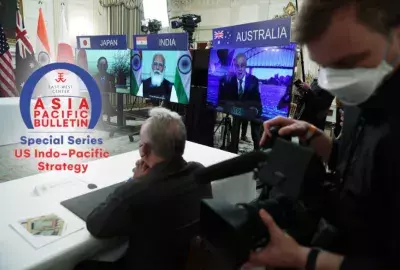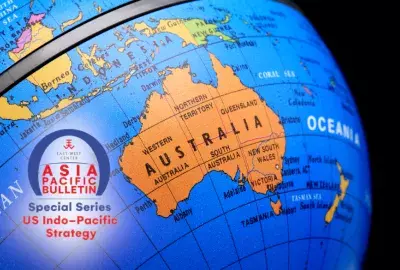Error message

Ambassador (retired) Piper Anne Wind Campbell, Adjunct Professorial Lecturer at American University and former Chargé US Mission to ASEAN, explains that “In both countries, it seems, our younger populations are not aware of interesting joint initiatives that could inspire a greater sense of collaboration and alliance. The solution is to go beyond a defense emphasis and to revitalize the Thai-US alliance by tackling 21st century challenges.”
Many Americans have a favorable impression of Thailand. This is shaped among other things by the fact that Thailand—host of approximately 35 million tourists per year pre-COVID—is one of the Asian countries most visited by US travelers. No one can visit Thailand without falling in love with its beauty, people, culture, and food! However, few Americans are aware of the full history of the 200-year US-Thai relationship of “great and good friends.” Indeed, when I ask my graduate students to list America’s treaty allies in the Indo-Pacific, they invariably leave out Thailand. They may have heard of the Southeast Asia Treaty Organization’s 1954 Manila pact, but they are surprised to learn of the 1833 Treaty of Amity and Commerce and that President George W. Bush designated Thailand a major non-NATO ally in 2003. And, none know that the Joint Vision Statement 2020 for the US-Thai Defense Alliance envisioned a 21st Century alliance “[enabling] stability, prosperity and sustainability in the Indo-Pacific region in support of an inclusive and rules-based international order.”
Thai University students also lack information about the relationship. In one 2018 study conducted by the American Studies Association in Thailand (ASAT), 60% of the Thai university students participating characterized Thai-US relations as only at the average level. Responding to another question, 56% of the students agreed that “the US was once a good friend, but today is not as close to Thailand.” In both countries, it seems, our younger populations are not aware of interesting joint initiatives that could inspire a greater sense of collaboration and alliance.
The solution is to go beyond a defense emphasis and to revitalize the Thai-US alliance by tackling 21st century challenges. Not only are these challenges important in their own right, but we also know these concerns are of particular interest to younger generations in both Thailand and the United States. Listening to Dr. Panate Manomaivibool of Mae Fah Luang University on a recent Wilson Center panel about engaging citizen scientists to address marine debris, I was struck that this is the perfect area for US-Thai engagement. Already a problem pre-COVID, the pandemic has sidelined pollution abatement efforts and introduced an extraordinary new demand for single-use plastics, especially personal protective wear, such as face masks and gloves. Two startling statistics: COVID-19 triggered an estimated global use of 129 billion face masks and 65 billion gloves per month. In Bangkok alone, plastic waste surged 62% in just one month at the height of the pandemic.
Pre-COVID, approximately 9 million tons of plastic entered the world’s oceans annually. This transboundary problem already threatened not only marine wildlife and coastal ecologies. It was recognized as a threat to human health and livelihoods on a global scale. In 2018, leaders of the countries which are members of the East Asia Summit (EAS) including the US and Thailand issued a Statement on Combating Marine Plastic Debris. As the acting US Ambassador to ASEAN during the negotiations leading up to that statement, I can affirm that there was strong recognition among ASEAN members and their partners that the stability of the maritime area that anchors the region’s growth was threatened by the marine plastic debris already present.
At that time, both the Thai and US governments were already talking about marine plastic debris as a serious problem. Chagrined to be listed among the countries producing the most marine plastic debris, he Royal Thai Government declared waste management a national priority and appealed to Thai citizens to lead a more eco-friendly lifestyle. In 2020, Thailand banned single-use plastic bags at major stores. Before COVID hit, the government’s goal had been a wholesale ban of single-use plastics in 2021.
Stateside, the US Congress passed the Save our Seas Act in 2018, which reauthorized and amended prior legislation to promote international action to reduce marine debris. In 2020, the executive branch released a U.S. Federal Strategy for Addressing the Global Issue of Marine Litter. Although the Federal Strategy was a positive step forward, the document’s tone was unhelpfully blaming: emphasizing Asia as a source of marine debris and calling out China as both the largest producer of plastic and the largest source of global plastic leakage. In a more positive vein, also in 2020, Congress unanimously adopted Save our Seas 2.0, establishing a Marine Debris Foundation and a Genius Prize for Save our Seas Innovations, as well as further emphasizing the importance of domestic and international efforts. And then COVID hit, and these concerns and efforts were placed on the back burner.
Now, President Joe Biden is re-emphasized climate and environmental concerns. Indeed, in a marked change from earlier US positions, Biden joined other G-7 leaders this summer in agreeing to a Nature Compact which included “stepping up action to tackle increasing levels of plastic pollution in the ocean.” In the G-7 statement, in addition to the option of strengthening existing instruments, the idea of a potential new agreement or other instrument to address marine plastic litter is referenced. I welcome these new ideas. But, having worked in the diplomatic sphere for 30 years and participated in the arduous process of negotiating an addendum to a treaty, I know just how time-consuming this might be.
In the meantime, joint work on plastic debris makes tremendous sense as a US-Thai priority. It speaks to the existential and environmental concerns of young Americans and young Thais. It acknowledges the importance to Thailand of preserving its beautiful coastlines in support of the tourism I referenced earlier. And, it recognizes that what already was a big problem has grown exponentially as an offshoot of COVID. Two existing mechanisms—the Young Southeast Asian Leadership Initiative (YSEALI) and the Mekong-US Partnership launched in 2020—would be natural vehicles for building engagement.
Ambassador (retired) Piper Anne Wind Campbell, Adjunct Professorial Lecturer at American University and former Chargé US Mission to ASEAN, explains that “In both countries, it seems, our younger populations are not aware of interesting joint initiatives that could inspire a greater sense of collaboration and alliance. The solution is to go beyond a defense emphasis and to revitalize the Thai-US alliance by tackling 21st century challenges.”
Many Americans have a favorable impression of Thailand. This is shaped among other things by the fact that Thailand—host of approximately 35 million tourists per year pre-COVID—is one of the Asian countries most visited by US travelers. No one can visit Thailand without falling in love with its beauty, people, culture, and food! However, few Americans are aware of the full history of the 200-year US-Thai relationship of “great and good friends.” Indeed, when I ask my graduate students to list America’s treaty allies in the Indo-Pacific, they invariably leave out Thailand. They may have heard of the Southeast Asia Treaty Organization’s 1954 Manila pact, but they are surprised to learn of the 1833 Treaty of Amity and Commerce and that President George W. Bush designated Thailand a major non-NATO ally in 2003. And, none know that the Joint Vision Statement 2020 for the US-Thai Defense Alliance envisioned a 21st Century alliance “[enabling] stability, prosperity and sustainability in the Indo-Pacific region in support of an inclusive and rules-based international order.”
Thai University students also lack information about the relationship. In one 2018 study conducted by the American Studies Association in Thailand (ASAT), 60% of the Thai university students participating characterized Thai-US relations as only at the average level. Responding to another question, 56% of the students agreed that “the US was once a good friend, but today is not as close to Thailand.” In both countries, it seems, our younger populations are not aware of interesting joint initiatives that could inspire a greater sense of collaboration and alliance.
The solution is to go beyond a defense emphasis and to revitalize the Thai-US alliance by tackling 21st century challenges. Not only are these challenges important in their own right, but we also know these concerns are of particular interest to younger generations in both Thailand and the United States. Listening to Dr. Panate Manomaivibool of Mae Fah Luang University on a recent Wilson Center panel about engaging citizen scientists to address marine debris, I was struck that this is the perfect area for US-Thai engagement. Already a problem pre-COVID, the pandemic has sidelined pollution abatement efforts and introduced an extraordinary new demand for single-use plastics, especially personal protective wear, such as face masks and gloves. Two startling statistics: COVID-19 triggered an estimated global use of 129 billion face masks and 65 billion gloves per month. In Bangkok alone, plastic waste surged 62% in just one month at the height of the pandemic.
Pre-COVID, approximately 9 million tons of plastic entered the world’s oceans annually. This transboundary problem already threatened not only marine wildlife and coastal ecologies. It was recognized as a threat to human health and livelihoods on a global scale. In 2018, leaders of the countries which are members of the East Asia Summit (EAS) including the US and Thailand issued a Statement on Combating Marine Plastic Debris. As the acting US Ambassador to ASEAN during the negotiations leading up to that statement, I can affirm that there was strong recognition among ASEAN members and their partners that the stability of the maritime area that anchors the region’s growth was threatened by the marine plastic debris already present.
At that time, both the Thai and US governments were already talking about marine plastic debris as a serious problem. Chagrined to be listed among the countries producing the most marine plastic debris, he Royal Thai Government declared waste management a national priority and appealed to Thai citizens to lead a more eco-friendly lifestyle. In 2020, Thailand banned single-use plastic bags at major stores. Before COVID hit, the government’s goal had been a wholesale ban of single-use plastics in 2021.
Stateside, the US Congress passed the Save our Seas Act in 2018, which reauthorized and amended prior legislation to promote international action to reduce marine debris. In 2020, the executive branch released a U.S. Federal Strategy for Addressing the Global Issue of Marine Litter. Although the Federal Strategy was a positive step forward, the document’s tone was unhelpfully blaming: emphasizing Asia as a source of marine debris and calling out China as both the largest producer of plastic and the largest source of global plastic leakage. In a more positive vein, also in 2020, Congress unanimously adopted Save our Seas 2.0, establishing a Marine Debris Foundation and a Genius Prize for Save our Seas Innovations, as well as further emphasizing the importance of domestic and international efforts. And then COVID hit, and these concerns and efforts were placed on the back burner.
Now, President Joe Biden is re-emphasized climate and environmental concerns. Indeed, in a marked change from earlier US positions, Biden joined other G-7 leaders this summer in agreeing to a Nature Compact which included “stepping up action to tackle increasing levels of plastic pollution in the ocean.” In the G-7 statement, in addition to the option of strengthening existing instruments, the idea of a potential new agreement or other instrument to address marine plastic litter is referenced. I welcome these new ideas. But, having worked in the diplomatic sphere for 30 years and participated in the arduous process of negotiating an addendum to a treaty, I know just how time-consuming this might be.
In the meantime, joint work on plastic debris makes tremendous sense as a US-Thai priority. It speaks to the existential and environmental concerns of young Americans and young Thais. It acknowledges the importance to Thailand of preserving its beautiful coastlines in support of the tourism I referenced earlier. And, it recognizes that what already was a big problem has grown exponentially as an offshoot of COVID. Two existing mechanisms—the Young Southeast Asian Leadership Initiative (YSEALI) and the Mekong-US Partnership launched in 2020—would be natural vehicles for building engagement.







